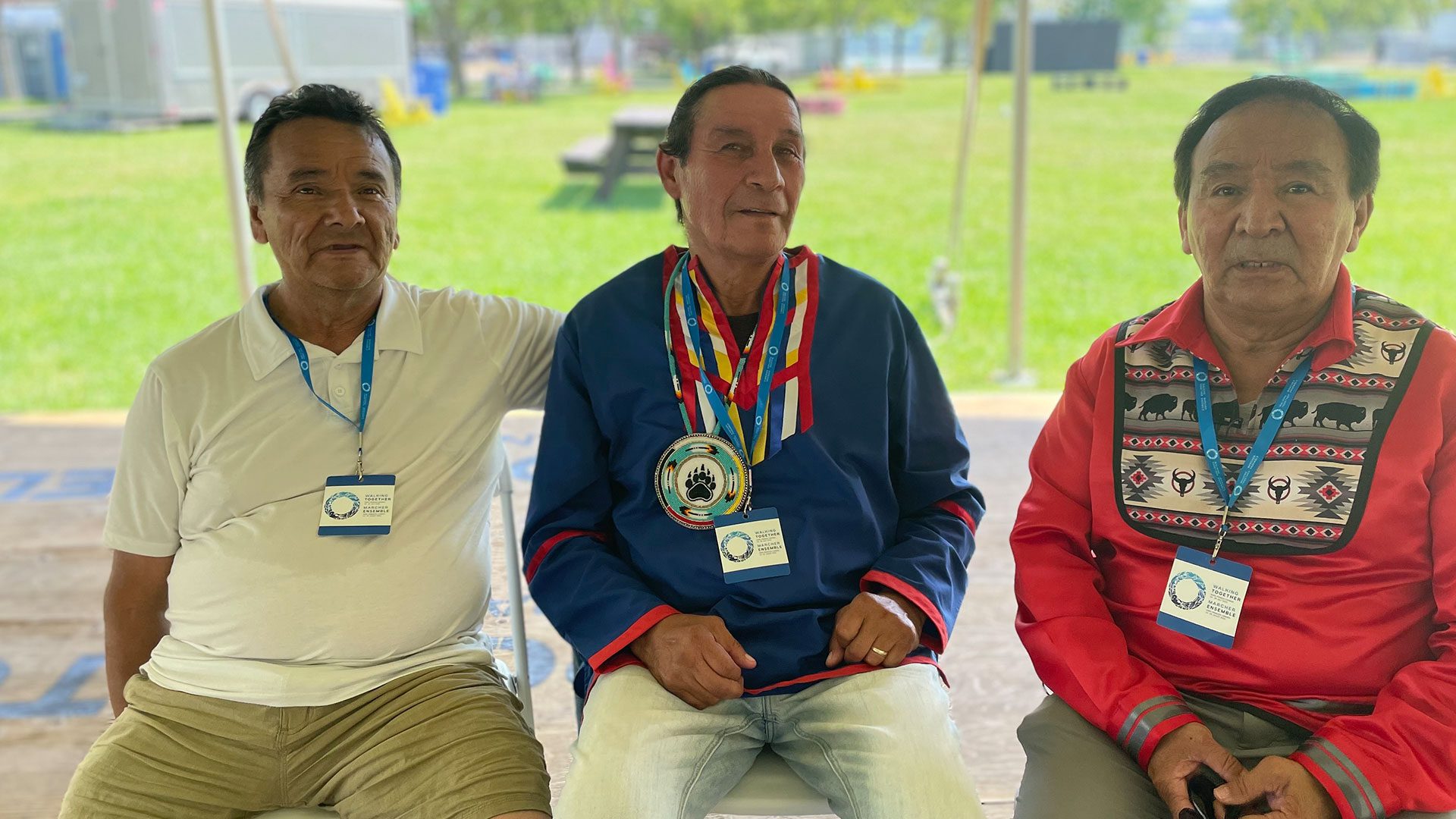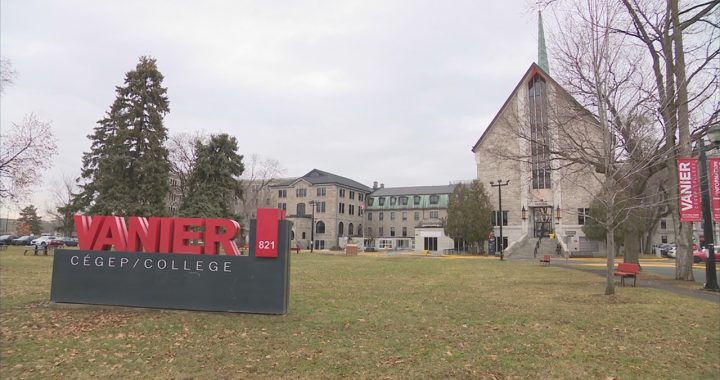Warning: This story contains details that some people may find disturbing. The Hope for Wellness Help Line offers immediate help to all Indigenous Peoples across Canada. It is available 24 hours a day, 7 days a week at 1-855-242-3310.
The annual Innu Nikamu music and cultural festival – held on the grounds of the former Mani-Utenam Indian Residential School in Quebec’s Cote Nord – kicked off to much fanfare this week.
The Catholic-run school in Mani Utenam was demolished in 1971. But for some survivors, it’s taken until 2022 and the occasion of the Papal visit, to finally open up about their experiences.
“What the Pope said – he’s on his knees to beg forgiveness from First Nations. It does something to me,” Louis-Georges Fontaine said through tears in an interview outside the Sainte-Anne-de-Beaupré basilica after the Pope’s holy mass on July 28.
Fontaine and two of his childhood friends agreed to speak to APTN News about their residential school experience if they could do so in their first language, Innu.
Fontaine, for his part, attended the Mani Utenam school for three years. Given that experience, he said he found the Papal mass triggering.

“In the archives, during the opening of the Mani-Utenam residential school – I saw that same scenario here,” Fontaine explained.
“They had the bishop in the front, the parishioners, the civil servants. It was almost exactly the same: the Pope, the bishops, the priests, and the rest of us in the back.”
Willy Régis spent 10 years at the school in Mani-Utenam and was “there for the closing” in 1971.
“And to be honest – they abused me. They raped me several times over three years,” Régis told APTN.
“The Innu in [Mani-Utenam] had a hard time. I’ve seen them beaten, abused,” Regis added. “You know, I’m not insensitive. I took back control. But I think of those who never got that control. Some of them died. My older brother died by suicide.”
Two friends
Réal McKenzie, who accompanied his two friends to Sainte-Anne-de-Beaupre, said for years survivors lived in fear of speaking out about their experiences.
“There was a priest, and he told me: ‘A bullet, a .22 calibre bullet. If you tell your father about me, I’m going to shoot you.’ This is what he told me. Those are threats,” McKenzie said.
“The younger ones – I’ve seen them crying. Seen them beaten, too. Seen when the police came to arrest them and bringing them back [to the school] to be sexually abused, to be beaten, to be injured and brought to the hospital.”
Mani-Utenam is one of 64 communities to receive federal funding to assist in ground searches and commemoration of former residential school sites.
According to the Crown-Indigenous Relations website, Innu Takuaikean Uashat mak Mani-Utenam received $715,000 in “Residential Schools Missing Children Community Support Funding” for a two-year project.

Project details
The details of that project have not yet been made public by band council officials.
For its part, the Canadian Conference of Catholic Bishops put up a $30-million healing fund to help communities establish resources for residential school survivors.
While the Innu Nikamu festival has, for years, been a symbol of reclamation for his community, Fontaine sees a need for more men’s healing programs going forward.
“Men have more and more issues,” Fontaine added. “They don’t talk about it amongst themselves. They drink more. They beat their wives, they end up in prison. We’ve done several studies in communities, and it’s men who have the most difficulty because the services are not adequate.”
As a medicine man, McKenzie has his own vision for his community.
“We need to sit down in a circle [and] discuss what we’d like to do,” he said. “One could say, ‘I will cook.’ Another might say, ‘I’m going to split wood.’
“After a day, we might know where we’re going to line up, and find out how we’re going to work to help each other.”










